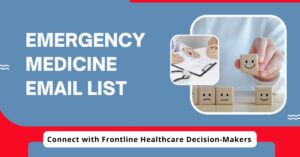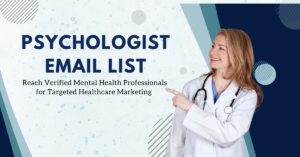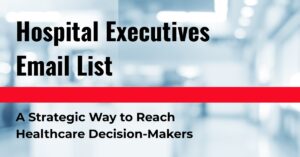In the fast-evolving healthcare business, organizations must prioritize financial efficiency to sustain growth and ensure seamless operations. Revenue Cycle Management in the Healthcare Industry plays a pivotal role in optimizing financial performance, minimizing revenue leakage, and improving cash flow. Businesses operating within this space must adopt a strategic approach to enhance efficiency and reduce operational bottlenecks. Below, we explore the best practices for effective revenue cycle management (RCM) that can drive success for healthcare organizations and B2B businesses supporting this sector.
1. Implement Advanced Technology Solutions
The integration of automation and artificial intelligence (AI) in revenue cycle management streamlines processes, reduces human error, and accelerates claim processing. B2B technology providers offering cloud-based RCM platforms empower healthcare organizations with real-time analytics, predictive insights, and seamless billing workflows. Investing in electronic health records (EHRs) and automated claim submission systems minimizes delays and enhances overall financial accuracy.
2. Enhance Data Accuracy and Standardization
One of the primary challenges in revenue cycle management is inaccurate or incomplete data entry. Ensuring clean and standardized data across all platforms prevents claim denials and delays. Businesses specializing in data verification, cleansing, and enrichment can add value by providing up-to-date and precise information for smooth billing and reimbursement processes.
3. Optimize Patient Eligibility Verification and Insurance Processing
Timely verification of insurance eligibility and coverage details ensures that healthcare providers receive prompt reimbursements. Implementing automated eligibility verification systems helps reduce administrative burden and improves cash flow. B2B organizations offering data-driven verification services can assist healthcare providers in minimizing claim rejections and ensuring accurate billing.
4. Improve Billing and Coding Practices
Accurate medical coding and billing procedures are essential for maximizing reimbursements. Healthcare businesses should adopt compliance-driven coding solutions to align with industry standards. Partnering with B2B coding service providers helps mitigate errors, reduce claim denials, and ensure that the right coding methodologies are applied for different procedures.
5. Strengthen Accounts Receivable Management
Effective accounts receivable (AR) management plays a crucial role in maintaining healthy cash flow. Healthcare organizations must implement automated follow-up systems, regularly monitor outstanding claims, and prioritize high-value reimbursements. B2B solutions offering real-time AR tracking and collection strategies can help streamline payment collection and prevent revenue losses.
6. Leverage Data Analytics for Revenue Optimization
Using predictive analytics and business intelligence tools enables healthcare providers to identify trends, predict revenue cycles, and optimize financial performance. B2B organizations offering custom analytics dashboards can support decision-making by providing real-time insights into revenue cycle efficiency, patient payment trends, and reimbursement patterns.
7. Ensure Regulatory Compliance and Risk Mitigation
Regulatory requirements in the healthcare industry continue to evolve, and non-compliance can lead to revenue setbacks. Adhering to HIPAA, CMS, and other industry regulations ensures that financial transactions remain secure and compliant. B2B firms offering compliance auditing and risk management solutions can help healthcare organizations maintain financial integrity and avoid potential legal complications.
8. Streamline Patient Payment Collections
With the rise of high-deductible health plans (HDHPs), healthcare providers must optimize patient payment collection strategies. Offering multiple payment options, transparent billing statements, and digital payment gateways enhances the patient experience while ensuring timely collections. B2B service providers specializing in payment processing solutions can facilitate seamless transactions and reduce outstanding balances.
9. Adopt a Proactive Denial Management Strategy
Claim denials can lead to significant revenue losses if not addressed proactively. Implementing a denial management system helps identify root causes, rectify errors, and resubmit claims efficiently. B2B partners offering AI-powered denial tracking solutions can help healthcare organizations enhance claim approval rates and recover lost revenue.
10. Educate and Train Revenue Cycle Teams
Continuous training and development programs for revenue cycle teams ensure that staff remain updated on best practices, coding changes, and compliance requirements. B2B companies providing training modules, webinars, and workshops add value by equipping healthcare organizations with the necessary knowledge to optimize their revenue cycle processes.
Tools to Practice Effective Revenue Cycle Management
Leveraging the right tools is essential for optimizing Revenue Cycle Management in the Healthcare Industry and ensuring seamless financial operations. Automated billing software helps reduce errors and accelerates claim submissions, minimizing delays in reimbursements. Electronic Health Records (EHRs) integrated with revenue cycle solutions enhance data accuracy and improve coordination between clinical and financial processes.
AI-powered denial management systems assist in identifying claim rejection patterns and provide predictive insights for reducing denials. Real-time insurance verification tools streamline eligibility checks, reducing administrative burdens and ensuring upfront clarity on patient coverage. Additionally, business intelligence dashboards and analytics platforms help organizations track key performance indicators (KPIs), identify revenue leaks, and optimize financial strategies. B2B providers offering these advanced RCM tools enable healthcare organizations to enhance efficiency, maximize revenue collection, and maintain financial stability.
Common Hurdles in Revenue Cycle Management
While implementing best practices in revenue cycle management can lead to improved financial performance, several challenges can hinder progress. Frequent claim denials, administrative inefficiencies, evolving regulatory requirements, and inconsistent data management are some of the primary hurdles. Additionally, resistance to adopting new technologies and training staff on updated processes can slow down improvements. B2B organizations specializing in automation, compliance, and data-driven solutions can play a key role in helping healthcare providers overcome these challenges and ensure a streamlined revenue cycle.
Conclusion
Revenue Cycle Management in the Healthcare Industry is a dynamic process that requires a combination of technology, compliance, and strategic planning. By leveraging automation, data analytics, compliance solutions, and proactive financial management, healthcare organizations can optimize their revenue cycle operations and drive financial success. B2B businesses providing innovative RCM solutions have a significant opportunity to support this sector by offering tools and services that enhance efficiency, reduce revenue losses, and improve overall profitability. Implementing these best practices can help healthcare organizations stay financially resilient while ensuring smoother revenue cycles and improved patient care delivery.
Visit our website Med Stream Data for more healthcare industry related information!







